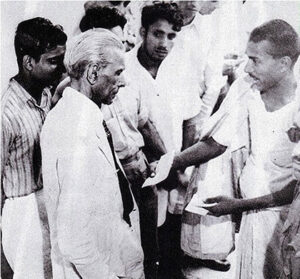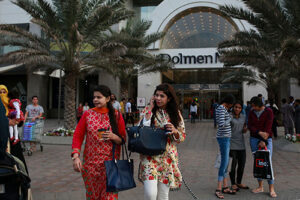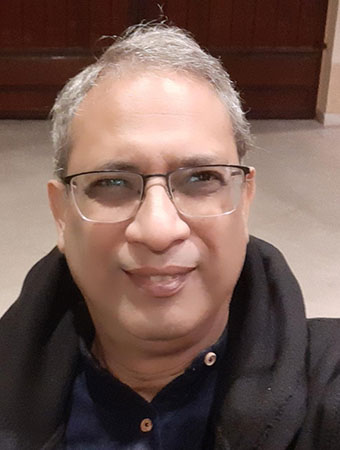Karachi is a port city spread over an entire division and boasts a population of over 16 million persons and increasing annually at 2.25 percent. It is calling for autonomy, but that is like a beggar wishing for a horse to ride. This call for autonomy is nothing new. From the very beginning, Karachi had sought autonomy. By the early 18th century, when merchants were seeking a reasonable place for a port, they found the backwaters of Keamari — where the Karachi Port Trust (KPT) building now exists — highly suitable for the purpose. In those days, Karachi had scattered places of pilgrimage such as the Mahadev caves and the Abdullah Shah Ghazi shrine in Clifton, and dispersed farms and hutments along the coast and the rivers. This was around the time when the Mughal Empire was disintegrating, small states were emerging, and the colonialists were gaining ground. Alongside, the Kalhoras were starting to seize control of the Sindh region. In order to establish trade and protect it from robbers and looters around the place — and from the harsh climate — the merchants built a walled city comprising a bankers’ street and warehouses, with a sprinkling of residences. It was the beginning of what is now Karachi. This walled city withstood siege by the Kalhora rulers who wanted to take over the city. Later, there was a long standoff with the Talpur forces, following which Karachi negotiated a settlement allowing the Talpurs to mount guns and cannons at Manora and set up a Qazi court outside the walled city.

Karachi has very little stake in its vicinal area except as a safe passage for its trade. The command area of the city has expanded over the centuries. The British Government realised the importance of the city as a significant point on the traditional and emerging international trade and military routes. They built infrastructure to take maximum advantage of the location. They administered the city through the civil service, giving merchants and traders an opportunity to resolve their issues and disputes, and meet their needs on a self-help basis. The British during their 100-year rule in Sindh, with Karachi as its capital, put in place laws, procedures, and infrastructure. The Civil Service grew strong, with the Commissioner and Deputy Commissioner occupying key positions in the city administration. There was direct rule, which favoured the merchants and labour contractors. It separated the local labour and occupational groups such as farmers, grazers and fishermen from the elite immigrant merchants, traders and craftsmen. The Muslim community of Karachi, then a minority in power-sharing, struggled for Independence.
Karachi’s present call for autonomy is not rooted in the Muslim refugees’ influx from different parts of the subcontinent on the eve of Independence in 1947. The critical mass of refugees created a political constituency and a political culture that is represented in the city’s Local Government. This critical mass has grown further with the arrival of refugees from Bangladesh in the seventies. Over the years, this political constituency has become an integral part of national politics — but is viewed with disdain. This constituency’s growth and subsequent dissipation has to do with Pakistan’s political engineering. Logically disconnected from Karachi, this constituency is emotionally attached to its identity as Pakistanis. And it is this attachment that is used as a handle by the centre and the province to negotiate governance deals. Karachi’s call for autonomy is a call to be let out of this role. For the centre and province, at daggers drawn with each other, letting go of this handle, would mean releasing their hold on governance.

As the country’s only port city and boasting a major international airport with more than 90 percent of its trade transiting through it, the city generates high revenues, employment, goods and services. The port makes Karachi attractive for industrial development, foreign investment, banking and finance, communication and social facilities, and services development. Karachi’s economic worth is integral to its political significance. The main hurdle is the city’s refugee population and its political leadership. Both the centre and the province, in the last decade, enacted laws to undermine Karachi’s voice and visibility. The devolution of power from the province to the Local Government has been completely undone and its ability to self-manage and self-serve has been restricted. However, as the devolution of authority to the provinces implied in the 18th Amendment, is set to be turned back, chances are that Karachi’s call for autonomy may become a call for decentralisation. From the existing situation, it appears that the political deal would be to decentralise provincial powers to the city’s Local Government, thereby allowing the centre to handle Karachi, while devolution of power to the provinces is not completely turned back but partially retained by the provinces.
Why does Karachi want out? The social, cultural, economic and political freedom that large cities bring, is a major attraction for the residents and prospective immigrants to the city. Rich or poor, Pakistani citizens understand the value of liberal movements and the informal sector for individual and household survival and development, and no one values this more than Karachi’s residents. With a large part of the country under the stranglehold of the rich and powerful lobbies, Karachi provides shelter and retreat not only to the poor but also the middle-class and those aspiring to be rich. Despite the underdevelopment, the absence of social facilities and security, and limited access to economic and social development opportunities, Karachi presents networks, track 2 processes, backup and recovery supports and, more importantly, connections to global systems, which even Lahore and Islamabad, with all their development and access to decision-making, may not be able to provide.
Karachi’s call for autonomy needs to be viewed from the angle of a people embracing globalisation and emerging as part of the global community. Karachi is not in conflict with the rapidly changing global culture and politics but is trying to keep pace with it. The city’s planning and management is crucial to linking Pakistan with the world, and Karachi’s residents, particularly the youth, are willing to play their role. Karachi’s call for autonomy is not a political call but a demand for liberalisation of the economy, culture and social practices. In the early 18th century, the city walls were necessary for protection. In today’s emerging world, connections are more important for development and protection. Karachi’s private sector is gradually creating a communication network that will give its residents an edge in businesses, in social and economic development and in political manoeuvring. The communication infrastructure, particularly in the context of the COVID-19 pandemic and the youth bulge, will help Karachi to quickly become competitive and align its businesses, culture and politics with international markets. It is imperative that the call for autonomy be heard and understood and not be confused with any political engineering.

The writer is an architect and development entrepreneur, presently working as an associate professor at Sir Syed University of Engineering and Technology, Karachi.

